“Ew.”

We had a visitor from the England’s Globe Theatre today…sort of: Liam shared a quote during Morning Watch from Shakespeare’s A Midsummer Night’s Dream. “In that play,” he said, “a character declared that ‘love sees not with the eyes but with the mind.’” Liam then elaborated with an excellent English-to-English translation. “It’s easy to jump to conclusions about people based solely on their appearance. But to your left and to your right, you’ll find people just like you with different strengths, worries, humors, and hopes if only you could get to know them.”
The heads on the benches were peaking left and right, perhaps taking a second look at their cabinmates. But after we said the Pledge of Allegiance, we walked to the dining hall, and the pensive glances gave way to regular conversation.
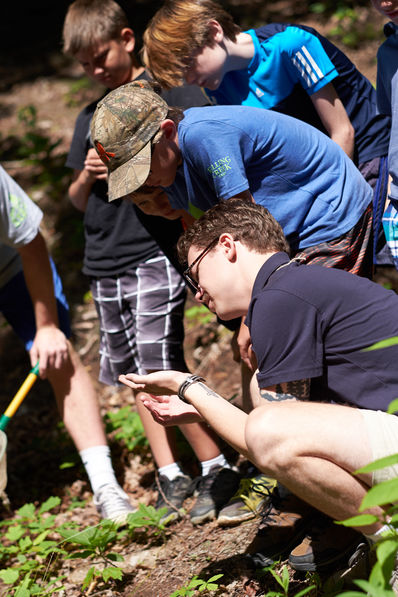
In Nature today, Will was leading a class about all things venomous and poisonous. He and the campers took a walk down a path, stopping to inspect plants, count their leaves, and see whether it was a vine or just a sapling of a nearby tree. In the grass they spotted small spiders, checking them against a guidebook for any indication to the potency of their venom. They found a creek and began looking for salamanders with poisonous defenses against predators, and that, despite their toxic flesh, their skin is permeable to such a degree that simply by handling them we can subject them to the unseen residues on our hands such as bug spray and sunscreen.
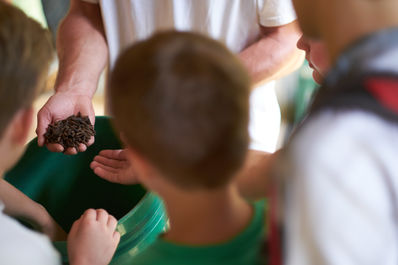
At the F.A.R.M. Doug was demonstrating the process of composting. He and the campers walked over to a large plastic bin, its lid a layer of burlap. “I didn’t even know this was here,” said a camper, assuming that any process involving decomposed vegetables would be cloistered far away where no one could be accosted by its stench. But only when you put your nose over the container itself could you detect the mild but odiferous soup of decay.
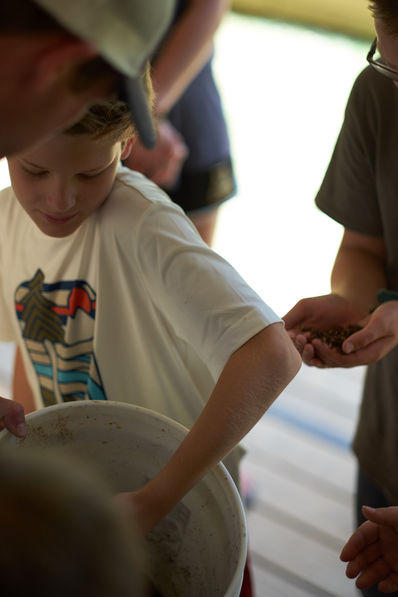
Doug then showed them who was responsible for breaking down all of that soggy chaff and detritus so quickly and stenchlessly: soldier flies. He shoveled some of the grubs in by the trowel full and then held them in his hand, offering a closer inspection. They leaned in.

Most of the onlooking faces expressed an irrefutable “ew,” but beneath their prejudiced disgust was an underlayment of curiosity. Doug poured them into a volunteer’s cupped hands and, to his self-startling amusement, his scrunched face turned into a smile as the writhing throng of grubs rioted harmlessly in his palms. A smile spread across the group that bubbled into full-fledged laughter. Now others wanted to hold some too. He reached over the edge and cast the larvae evenly over the bottom of the bin. “Why do they try to crawl through my fingers?” he asked, still smiling. “They’re looking for someplace dark to go,” Doug said. “It’s just what they do.” Soon they were asking all kinds of questions: “How much can they eat? How long do they live? What do they do when they hatch?”
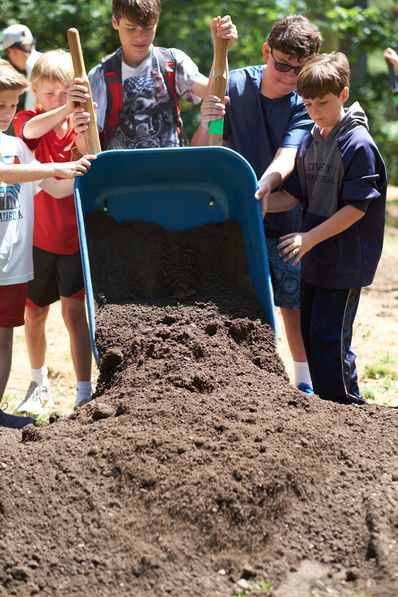
A kind of door was thrown open. Quickly they took to the handles of rakes and shovels and wheelbarrows (either from inspiration or simply to replace the wriggling sensation with something…less wriggly) and began working in the garden area: cutting furrows for drainage, stacking rocks for a new partition, moving soil and shaping it into bed rows.
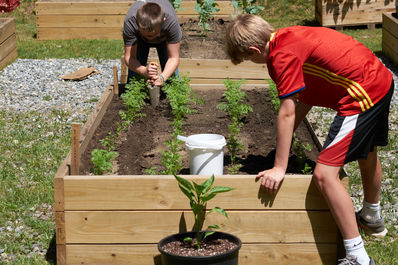
While Helena from Shakespeare’s play was speaking more on romance than on soldier flies and salamanders, the activities at camp are a perfectly suitable landing for the notion. It can be read as an invitation to step out of your comfort zone, to not lay so much confidence on your eyes but rather place it on what you learn, be it of flies, or salamanders, or of each other.